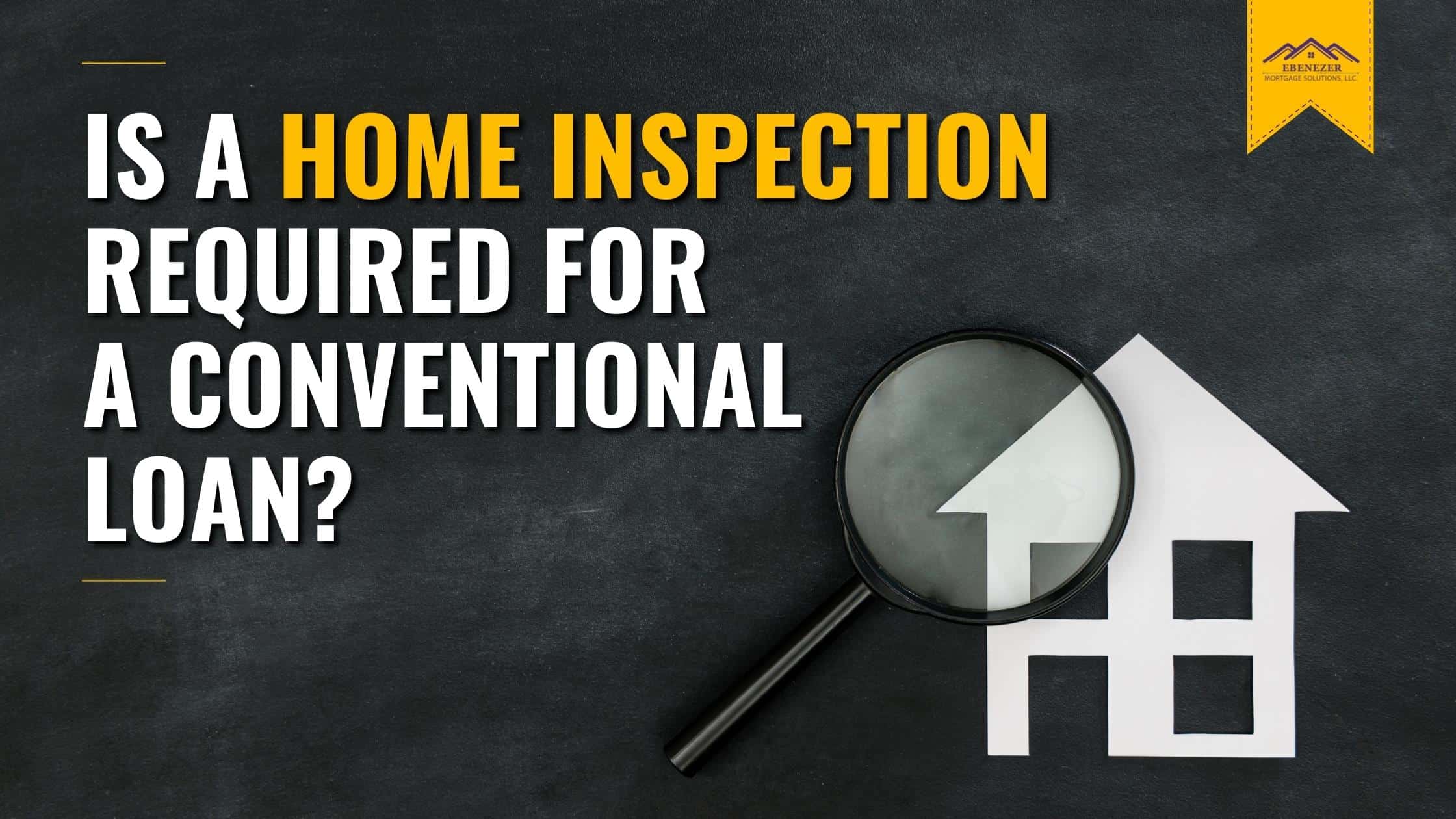Your Most Trusted Partner in Home Purchase Loans & Refinance Loans
Open Hours: Mon. - Fri., 9:00 a.m. - 6:00 p.m.

Home inspections refer to the assessment of a property's condition. It is an additional cost usually paid for by the buyer. However, no one really wants another expense when buying a property. That's why you'll usually hear home buyers asking questions such as, "is a home inspection required for a conventional loan?"
The answer to this question is "no". Most lenders don't require a home inspection when you apply for a conventional mortgage. But as a home buyer, it will be in your best interest to have one conducted on the house you're buying.
So why do you need a home inspection?
To answer this question, we'll delve deeper into why a home inspection is important, how much it will usually cost, and what you can expect.
When you make a purchase, especially one that costs a lot of money, you want to make sure that it's worth it. And as buying a home is probably one of the biggest purchases you'll make in your life, you want to ensure that everything is as it seems.
This is why home inspections exist. It is the buyer's last chance to discover potential issues with a house before purchasing it.
A home inspection is an objective assessment of a property's structure and systems. The whole process may take about 2 to 4 hours depending on the size and condition of the house. Once done, the inspector will provide the buyer with a home inspection report. This report will cover their findings, analysis, and recommendations.
Although a home inspection may not really affect your home-buying decision, it can make you aware of the problems that might potentially occur in the future. And if you have a home inspection contingency included in your purchase agreement, you may have more options to choose from.
A home inspection contingency is an inclusion in the sales contract that allows the buyer to order a home inspection. If the home inspector reveals significant issues in the property, the contingency will allow the seller to repair the issues or let you walk away from the sale without any penalty.
In some cases, home inspections may affect the mortgage approval for conventional loans. Lenders would want to make sure that the house you're buying is in good condition to determine whether it is worth spending money on. There are a few lenders, however, that will allow you to purchase a house that is unsafe.
So is a home inspection required for a conventional loan? It's up to you. In the end, it's the buyer's responsibility to ensure that they're not purchasing a house that has too many flaws or doesn't fit their needs.
The term home inspection is often confused with the term 'home appraisal'. But although they both involve assessing your home's condition, they are done for different purposes.
Your mortgage lender often requires a home appraisal. However, this process only considers the property's general condition to determine its current market value.
On the other hand, a home inspection determines the overall condition of the property to identify if there are any items that require repairs. Home inspectors don't care much for a property's curb appeal. What they do care about is looking for any major structural issues or defects that might endanger the homeowner.
With a conventional loan, most lenders require only a home appraisal. But there are instances when the licensed appraiser visits the property and finds out that the defects in the home require a more expert inspection. The underwriter may then order a complete home inspection before they decide to approve your conventional loan application.
With FHA loans, many lenders demand both a home inspection and an appraisal. This is to ensure that the property meets the criteria set by the FHA.
Home inspection costs can vary depending on your location. In Florida, a home inspection for an average-sized house typically ranges between $250 - $400. And if you have a very large house, it could run up to $1,000 or more.
When choosing a home inspector, make sure that they are qualified professionals. The inspector will provide you with a specialized report about the issues a property has so you can decide whether you can live with those problems or not.
In-depth home inspections will cover a home's exterior and interior parts. The following are some of the areas that home inspectors will inspect for potential issues:

After making sure that you're working with a certified home inspector, one of the important questions you can ask them is what's covered in the inspection and what's not. Generally, home inspectors don't look for the presence of very dangerous substances such as methane, asbestos, and radiation.
You can also ask them about anything that you're concerned with such as the life of the roof, any drainage issue, or if the house is properly insulated.
Although it's not mandatory, the home buyer is encouraged to attend the home inspection. It's a great time for you to ask the inspector your questions. Additionally, if their report shows major issues with the property, you can ask home inspectors for professional advice on what it could mean to you once you're the homeowner, what to do, or who to call.
As mentioned above, the options available to you if the inspector finds something concerning in the house will depend on whether you have a home inspection contingency.
Without the contingency, you're basically accepting the property as is. Regardless of what issues the inspector finds, it'll be up to you to fix them.
With a home inspection contingency, you'll have more choices. If the problem is fixable, you can ask the seller to handle the needed repairs, renegotiate the sales price, or give you cash credit upon closing so you can fix the issues yourself.
However, not all home sales reach the closing table. If the home inspector finds significant issues with the property, then the buyer can back out of the contract. Examples of these significant issues are rundown roofing that requires a total roof replacement or drainage problems that caused serious structural issues.
So not only do home inspections protect you, but they can also help you save money in the long run.
Homebuying can be overwhelming, especially for first-time home buyers. They would have to apply for a home loan, shop for houses, and most likely schedule home inspections required by lenders. But with Ebenezer Mortgage Solutions, at least one of these actions won't be an issue.
Ebenezer Mortgage Solutions is a mortgage broker company located in Tampa, servicing all of Florida. One of our goals is to make the home loan process stress-free for you. We'll submit your loan application to multiple lenders, which will give you access to the best deals in your area. You focus on looking for your dream home, while we do the leg work for your mortgage.
We'll then gather all the offers you received and present them to you. Our mortgage broker can then give you expert advice on which mortgage will be a good fit for your situation and needs.
So if you're ready to purchase your home, reach out to us immediately. If you have questions about home loans, whether it's conventional loans, FHA loans, or any other mortgage programs, we will be more than happy to answer them.
Call us today at (813) 284 - 4027 and let us start working on your mortgage application.
